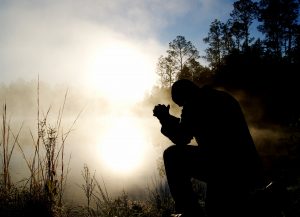Connected upward, yet pulled downward.
That is the battle within your soul.
But it’s for a purpose. And it’s good.
© Desireofmysoul.faith & SoulBreaths.com. All rights reserved.
Combat zone series is the foundational post for soul basics.
READING TIME: 3 MINUTES.
Italians might wish a newborn“benvenuti alla luce”—welcome to the light—but whenever I see a baby, one of my first thoughts is “Welcome to the battlefield.”
The dynamics have begun. Within that little body lies a great commission . . . its soul’s journey, purpose, identity.
It won’t be easy because the soul-body (a uniquely fused form for physical/spiritual life) will engage in a no-holds-barred tug of war vs. resting in a holy balance.
I know that battle well. More than likely, you sense it too. It is, after all, the stuff within all of us residing on this side of heaven.
IN A BEGINNING
Mine, that is. One word kept popping up through my life: soul. And it’s been unshakably linked to my longtime awareness of God and my relationship with Him.
My earliest recollection of God’s presence . . . hearing Him on some level and having a deep desire to be with Him (and return to Him) . . . started around age four. I’d think of Him, spend time in quiet places outdoors to be with Him, and sometimes lie across the bed for an afternoon nap, asking if I could leave this world to be with Him.
But every time I’d wake up from my childhood hoping-to-be-with-God naps, there I was. Still here. I’d get sad and cry because He hadn’t taken me.
I believe that was my young soul reaching for what it instinctively hungered for: Him.
But it’s been a long and
w
i
n
d
i
n
g
road since then—with a hiatus or two (or more) from that earlier panting for Him.
A seriously real spiritual battle had pulled my soul in various directions, trying to eclipse Him and derail me from His plan and goodness, from the Light of the world.
But then . . . He stepped in. And the deep-dive into my soul’s restoration in Him began—again.
Those back-and-forth soul struggles can get frustrating, right? Understanding what’s going on behind the scenes of your soul’s battle can help.
So here’s the game plan for this series:
1. Scan the perimeter of what’s warring within and without.
2. Step into the soul-body tango—and your soul’s three nuances.
3. Learn five rules of engagement to finish your race well.
4. Consider the soul dynamic within a Fellini film—via a film noir lens.
WHAT’S WARRING WITHIN
Let’s discuss basics—some pretty amazing basics at that.
Your soul is breathed from God. It holds the identity of what God made you to be in Him vs. the illusion that whispers to you from the world and other sources.
An unseen God and an unseen soul. Both real, tangible in a unique and mysterious way. Both hidden, yet sensed, felt, and evidenced in this physical world.
Your God-breathed soul is called upward to Him—but its visible vessel, the body, is made from the earth (dust to dust) and is tethered to this world.
Like in a theatrical production, both players (soul and body) move downstage. The power struggle begins. The soul’s battle-heavy glory work ignites.
And a cast of characters join in and muddle your soul story with a gazillion subplots—many opponents on many soul-body battlefronts, spiritually and physically.
(1) the world—earthly, mundane, carnal, temporal pursuits
(2) your DNA
(3) outer impacts—cultural/environmental
(4) relationships—family, friends, coworkers, neighbors, congregant members, etc.
(5) life encounters/experiences
(6) your since-the-beginning-of-time adversary, satan
And let’s not forget free will. After all, humanity’s plan (way of thinking, choosing, thinking) is what got us in trouble to begin with—i.e. the Garden of Eden.
It doesn’t take much to stir up an inner battle that impacts your life with others and with God—instead of doing what the soul-body should be doing: stirring up its entire being to love and serve Him.
(2) standing before God’s holiness, our most “righteous” acts are like filthy menstrual rags. Our sins (missing God’s holy mark) cause us to be withered like a leaf, carried away like the wind [Isaiah 64:5(6)]
(3) our imaginings (rooted in our hearts) are evil from youth [Genesis 8:21b]
(4) none of us are righteous [Ecclesiastes 7:20, Psalm 53:3-4, Psalm 14:2-3, 1 Kings 8:46, among many others].
WHAT CAN YOU DO?
Plenty, actually. But let’s take it gently. Getting more understanding starts with a grasp of your soul nuances based on what the Hebrew reveals.
READ PART TWO NOW. COMBAT ZONE SERIES: PART 2—SOUL NUANCES
PHOTO CREDITS
Light in cave crevices photo by Joe Gardner on Unsplash.com
[Combat Zone is a foundational post for this blog. The original article was created/posted in 2009, but for easier reading divided into four posts much later.]














